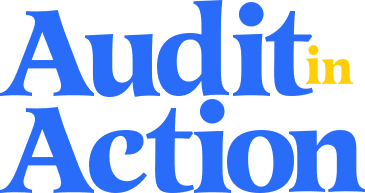Bridging the Gap: What New Research Tells Us About Attracting Future Accountants
The audit and accounting profession has long grappled with how to engage the next generation of talent as an unprecedented number of CPAs reach retirement. Since 2021, the Center for Audit Quality (CAQ) has conducted comprehensive research into student perceptions of, and openness to, a career in accounting to inform our Accounting+ campaign.
Accounting+ is working to attract high school and early college students to the profession by dispelling misperceptions, providing in-classroom education, and connecting them to professional opportunities with our partners. Our pipeline research helps us understand student perceptions of accounting, their education and career priorities, and which accounting messages resonate the best.
The CAQ’s 2024 report with Edge Research, Expanding the Accounting Profession Pipeline, builds on our initial 2021 data and reveals that many students still lack exposure to accounting careers, resulting in continued difficulty in improving accounting program enrollment. However, when exposed to messaging that highlights the benefits of a career in accounting, student interest increases – highlighting the importance of reaching students before they make critical higher education decisions.
Through our partnership with EVERFI, we’ve developed a digital course that helps students explore accounting careers in high school classrooms. During the 2024-2025 school year, we reached over 96,000 students in 3,724 schools, and surveyed course participants to understand their perceptions of accounting before and after taking the course.
Our newest report, Career Interest and Perceived Value of Accounting, shines a light on how to better foster meaningful connections with students. The main takeaway underscores our previous findings: early exposure to accounting careers leads to increased interest and openness to pursuing an accounting degree. Keep reading for more details on our research.
During the 2024-2025 school year, we reached over 96,000 students in 3,724 schools.
Career Decision-Making Trends
The CAQ’s 2024 study with Edge Research found that fewer students are selecting their intended college major in high school (33% in 2024 compared to 39% in 2021), but of those who decide in high school, 44% are doing so by sophomore year. This indicates that the window to engage students is shifting, especially as they weigh questions about college affordability, job stability, and long-term earning potential.
Our findings also uncovered that financial security and job flexibility are more important to students than ever, likely attributed to the current economic environment. In 2024, around 66% of students expressed that having a job that is always in demand was important to them when choosing a future career compared to 59% in 2021.
While students still value purpose and passion, especially among Black and Hispanic populations, they are increasingly focused on outcomes they can measure, such as income, advancement, and adaptability. This is a key moment where students’ career values are naturally aligned with traditional attributes in accounting, giving the profession the opportunity to introduce unfamiliar students to a career that provides them with the stability and economic freedom they’re searching for.
Students are increasingly focused on outcomes they can measure, such as income, advancement, and adaptability.
The Role of In-Classroom Exposure
EVERFI’s research offers a unique view into how student perceptions can change when they receive structured exposure to accounting. Their research sample included over 5,600 high school students enrolled in our digital course, Accounting Careers: Limitless Opportunities, and showed that our efforts to engage students in the classroom are working.
After taking the course:
- 81% of students report that they discovered accounting career paths they hadn’t known about before.
- 89% of students agreed that accounting skills were essential to achieving their professional goals.
- Student interest in accounting careers increased by 20%.
- Students’ perception of the value of accounting skills improved by 11% overall.
Black, Hispanic, and female students reported the greatest increases in interest and perceived skill value—findings that align with the exposure gaps identified in our 2024 report. Students from low- to middle-income (LMI) schools also showed strong gains, highlighting the importance of reaching those least likely to have informal exposure to the profession.
Black, Hispanic, and female students reported the greatest increases in interest and perceived skill value.
Why Sequencing Outreach Matters
When comparing the two studies side by side, one clear insight emerges: the most effective messaging evolves alongside student exposure to careers in accounting.
At the outset, students are most drawn to content that reflects their financial and personal goals. However, once they have meaningful engagement, such as completing a course or attending a school event, they become more open to messages about impact, purpose, and the role of accounting in broader industries like sports, tech, and entertainment.
These findings influence our full-funnel approach to Accounting+. We aim to meet students where they are, speak to what matters most to them, and introduce new dimensions of the profession once interest is sparked.
We aim to meet students where they are, speak to what matters most to them, and introduce new dimensions of the profession once interest is sparked.
Where We Go from Here
Together, the two research reports reveal the need for early, structured outreach:
- Students are ready to engage—but we must reach them before they make critical education and career decisions.
- Personal connection to the profession remains limited, particularly for Black and Hispanic students, but we can elevate stories of current leaders to show students what’s possible.
- Digital tools and in-school curriculum are proving to be scalable, effective strategies.
Accounting+ continues to build momentum, but the talent pipeline challenge requires a profession-wide approach. Our research makes a strong case for increased investment in high school accounting programs, especially in schools serving underrepresented students, as both studies reveal the critical importance of personal connections, early career decision-making, and the transformation potential of targeted interventions.
Follow the CAQ on LinkedIn to stay up to date on our talent initiatives.
